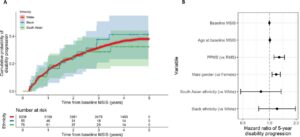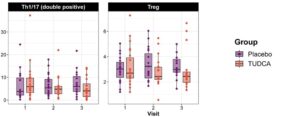
September 29th
Lipids lost in aging slow amyloid-β fibril formation
This study found that gangliosides, membrane lipids whose levels decline with aging, inhibit the assembly of amyloid-β into fibrils.
September 19th
A plasma biomarker for measuring tau aggregation
This study reports a novel immunoassay that uses plasma biomarkers to measure tau aggregation, as opposed to positron emission tomography (PET) scans or cerebrospinal fluid (CSF) collection.
Chronic hyperactivity induces AD-like proteomic changes
In this study, Keramidis and colleagues report that inducing chronic hippocampal hyperactivity in wild-type mice produces proteomic changes similar to those observed in the 5xFAD mouse model of AD.
September 13th
Familial Alzheimer’s mutations cause γ-secretase to stall
In this study, Devkota and colleagues found that presenilin-1 (PSEN1) mutations causing familial Alzheimer’s (FAD) show impaired processing of amyloid precursor protein (APP) upstream of the final cleavage events that produce secreted Aβ peptides.
September 8th
Mitochondrial impairment and DNA damage downstream of lipid dysfunction?
This study examined the effects of losing ABCA7 function (LoF) in post-mortem patient tissue and cultured human neurons, identifying alterations in lipid synthesis, mitochondrial function, and DNA damage.
ApoE4 shrinks neurons, leaving them overly excitable
In this study of mice expressing human ApoE3 or ApoE4, select populations of hippocampal excitatory neurons were hyperexcitable at 7-9 months of age in ApoE4-expressing mice, due to a reduction in cell size.






